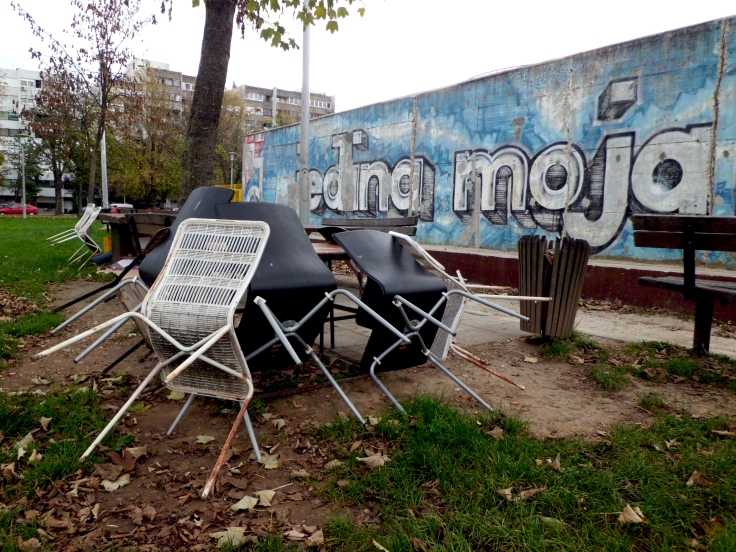On Ivor Martinić’s play “Bojim se da se sada poznajemo” (“I’m afraid we know each other now”)
Digging for Roots: I wrote this essay about a month ago for a blog which was created to go with and document the project “The Art of Ageing” of the European Theatre Convention. I was preoccupied with what it meant to be you and have others take part in what you feel. I wondered what it meant to be human. And I wondered who I was and why. What you can read here is an edited version. If you would like to read the full text, click here.
„A language is always a whole world view”, my professor of philosophy used to say. What seems so obvious opened up a new perspective to me and raised a lot of questions. During my studies, I started to ask myself about my native language from another, broader point of view and I also started questioning how my mother tongue affected the way I express myself in German, or any other language I speak. Back then I realized how strongly my mother tongue determines my personality and how the simple fact that I am bilingual causes many misunderstandings, and that there is always the imagery, the fierceness, the head-on brutality, the meekness, the sense of humor, and the meandering ways to tell stories of my home countries which always seeps through and interferes with my expression and way of speaking.
I love my language, I love the way it creates and destroys images. I also love that you can be obvious and subtle at the same time. But how can you translate this language without losing all the richness? I realized I wanted to dedicate myself to these questions, and not only on a theoretical level. I wanted to contribute to creating an understanding for the cultures of the Ex-YU countries. So I started translating, short texts at first, then longer ones, different genres, and as my way has always led me to the theater somehow, I ended up being a translator of dramatic texts.
When Jürgen Popig of Theater und Orchester Heidelberg asked me to translate Ivor Martinić’s new play for the project The Art of Ageing, I was honored and excited. I had read Martinić’s work before and his subtle writing and his ability to create a strong narrative in dramatic texts impressed me a lot.
In Martinić’s new play “Bojim se da se sada poznajemo” (“I’m afraid we know each other now”) Ivana leaves Filip for his increasing inability to create a common narrative and therefore (a personal) history, which means specifically that he is unable to express his emotions through language: He himself explains at a later point of the play that he always felt the most urgent need to tell her he loved her while she was asleep, and as soon as she would wake up, everything was gone. When she tells him the relationship is over, he cannot find words to express his feelings and instead quotes his mother, who told him about the best way to please a woman. He shifts his emotion into somebody else’s words, and he shifts the actual problem into something easier, more materialistic and “real”. But in the course of the play and in the course of his involvement with Andreas and Natalija, i.e. with himself, he realizes how important it would have been and still is to communicate.
Ivor Martinić created the play during and after the workshop with artists of Theater and Orchester Heidelberg and Gavella Theater Zagreb. With this play inspired by artists of at least two different nations, he beautifully demonstrates the human need for words, language, narration, memory and therefore history. But above all, he depicts the act of struggling for words which will translate what we feel into something we can grasp, we can understand, we can share and make peace with.
R.B., October 2014

© trashbus/Renata Britvec, 2013
